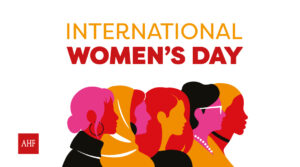Haitian children living with HIV are reported to be at higher risk of developing frequent ear infections and even hearing impairment, compared to children who do not have the virus.
This was discovered by a study published in a medical journal specialized in pediatric otorhinolaryngology, which involved 341 boys and girls with HIV in the city of Port-au-Prince, the island’s capital.
Vulnerable population
In the Caribbean region, Haiti is the country with the highest number of HIV cases. Thanks to the recent management of the pandemic of this virus, the prevalence is 1.9% of the population, well below the 3.2% recorded in the mid-1990s, according to data from the Joint United Nations Program on HIV /AIDS (UNAIDS).
According to the authors of the study, the prevalence of hearing deficiencies has always been studied in small groups of infants, and has shown very varied percentages ranging from 6.4% to 84.8%. In any case, the rates have always been higher in children with HIV than in other children who do not have HIV.
As reported by the news site SciDev.Net, the World Health Organization has estimated that the prevalence of hearing impairment in children under 18 worldwide is 1.6%, while this research found a prevalence of 18% in Haitian minors with HIV.
In addition, the authors, led by Dr. Vienna Valeriani, found that only a third (35%) of the caregivers of these children were able to notice that they had some degree of hearing loss.
Causes and consequences
Some previous research has documented that hearing impairment in people with HIV is mainly related to:
– Recurrent infection of the middle ear (otitis media)
– Cytomegalovirus (an opportunistic infection)
– Tuberculosis
– Side effects of some drugs, such as streptomycin, gentamicin and a type of antiretroviral (so-called nucleoside reverse transcriptase inhibitors)
Having trouble hearing can have a big impact, both on language development and on your chances of getting an education or a well-paid job. The good news is that early diagnosis, as well as proper treatment, can mitigate the future costs of this disability.
A tool within reach
The Haiti study set out to assess how hearing tests, called audiometry, via a mobile phone app would work in the context of a low-income, limited-resource country like Haiti.
The application was able to detect that 18% of children with HIV had hearing disabilities. For some of the children evaluated, the mobile phone test was not accurate, so they were referred to a more complete evaluation, and it was observed that 28% of them had moderate hearing loss and 8% had this problem in general serious or profound level.
As observed, hearing loss was related to frequent ear infections and a family history of hearing loss. What did not get related to be viral load (the amount of HIV circulating in the blood) or the duration of antiretroviral treatment.
Regarding this treatment that controls HIV, the authors of the study stressed that, despite the possible appearance of side effects, the antiretroviral regimen must continue to be provided and is capable of reducing the frequency of otitis media.
Regarding the difficulty of caregivers in perceiving hearing loss in minors, they considered that this fact only emphasizes the need for routine evaluations to detect problems of this type in infants living with HIV.
At AHF Latin America and the Caribbean we know that antiretroviral treatment is, to date, the most effective tool for maintaining the health of people living with HIV. And to start taking care of yourself, the first thing is to get a screening test. If you want a free, safe and confidential test, come to our offices in your country or write to us on Whatsapp and make your appointment now.






